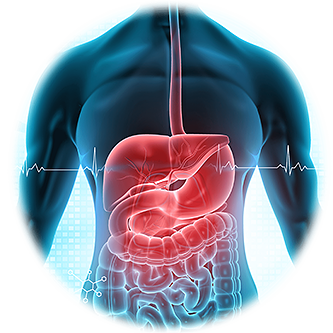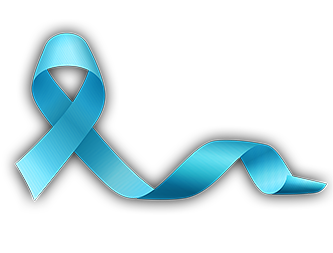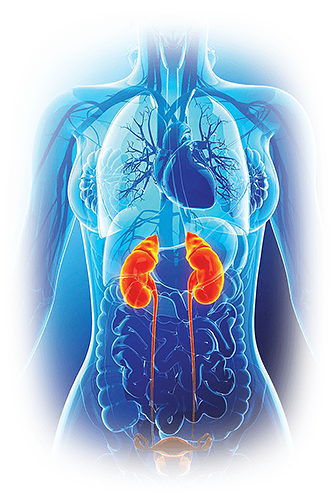Login
For Clinician Providers
For Clinician Providers
For Patients
Treating Men for Age-related Low Testosterone
The American College of Physicians (ACP) recently issued new guidelines on prescribing supplemental testosterone for men with age-related low testosterone (commonly called low T).
As men age, their levels of the hormone naturally decline, usually beginning after age 30. Older men with low testosterone who also have low energy, cognition problems, depression or other similar issues are often prescribed supplemental testosterone. However, the new guidelines, published in Annals of Internal Medicine, recommend that the supplemental hormone only be prescribed for sexual dysfunction.
Sexual dysfunction can happen in men of any age but is especially common in older men. Problems can include low sex drive, inability to achieve and sustain an erection, and premature or delayed ejaculation.
“The evidence shows that men with age-related low testosterone may experience slight improvements in sexual and erectile function [if prescribed supplemental testosterone],” said ACP President Robert M. McLean, MD, who is also an associate clinical professor at the Yale School of Medicine. “The evidence does not support prescribing testosterone for men with concerns about energy, vitality, physical function, or cognition.”
Diagnosis of low testosterone typically involves a medical history, a physical exam, and blood tests that measure testosterone levels. The blood for the test is usually drawn in the morning because testosterone levels fluctuate during the day but are highest in the morning. Testing may be done on two different days to confirm the hormone levels.
The new recommendations, which have been endorsed by the American Academy of Family Physicians, are based on the ACP clinical guideline committee’s review of thirty-eight clinical trials and twenty observational studies using supplemental testosterone. These studies included mostly older men with a range of symptoms. The committee found that in men with low testosterone levels, supplemental testosterone improved sexual function by 35% and erectile dysfunction by 27%. But the review found little to no benefit for other symptoms.
The new guidelines point out that treating with supplemental testosterone is not risk free. Potential risks include blood clots, stroke, sleep apnea, acne and possibly enlarged breasts. Men with these or other conditions may be advised against using supplemental testosterone even for sexual dysfunction.
If men are treated with supplemental testosterone for sexual dysfunction, the decision to continue to treat should be reevaluated after a year and then periodically after that. Treatment should be stopped if sexual dysfunction doesn’t improve, according to the new guidelines.
ACP’s guidelines apply only to men with low testosterone related to aging. The recommendations do not apply to transgender men who are routinely treated with testosterone and do not address screening and diagnosis of medical conditions that can cause low testosterone (hypogonadism). Additionally, the guidelines do not address issues with testosterone testing. For more information on this, see the article on Testosterone.
Sources:
January 7, 2020. ACP Offers Guidance on Testosterone Therapy to Improve Sexual Function in Men. NEJM Journal Watch. Available online at https://www.jwatch.org/fw116212/2020/01/07/acp-offers-guidance-testosterone-therapy-improve-sexual. Accessed February 6, 2020.
Cleveland Clinic. Sexual Dysfunction in Men. Available online at https://my.clevelandclinic.org/health/diseases/9122-sexual-dysfunction-in-males. Accessed February 6, 2020.
January 21, 2020. Testosterone Treatment in Adult Men With Age-Related Low Testosterone: A Clinical Guideline From the American College of Physicians, Clinical Guidelines. Annals of Internal Medicine. Available online at https://annals.org/aim/fullarticle/2758507/testosterone-treatment-adult-men-age-related-low-testoste…. Accessed February 6, 2020.
January 21, 2020. Efficacy and Safety of Testosterone Treatment in Men: An Evidence Report for a Clinical Practice Guideline by the American College of Physicians. Annals of Internal Medicine. Available online at https://annals.org/aim/article-abstract/2758506/efficacy-safety-testosterone-treatment-men-evidence-…. Accessed February 6, 2020.
January 7, 2020. New Testosterone Therapy Guideline Issued for Age-Related Low T. Renal and Urology News. Available online at https://www.renalandurologynews.com/home/departments/mens-health-update/hypogonadism/new-testosteron… Accessed. February 6, 2020.
January 7, 2020. ACP issues guideline for testosterone treatment in adult men with age-related low testosterone. American College of Physicians. Available online at https://www.acponline.org/acp-newsroom/acp-issues-guideline-for-testosterone-treatment-in-adult-men-…. Accessed February 6, 2020.
(November 5, 2019) Mayo Clinic. Male hypogonadism. Available online at https://www.mayoclinic.org/diseases-conditions/male-hypogonadism/symptoms-causes/syc-20354881. Accessed February 6, 2020.
https://labtestsonline.org/news/treating-men-age-related-low-testosterone



